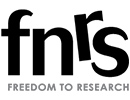Bad to know….
18.04.2017In the recent issue of the Journal of Economic Literature (JEL LV, 1, 96ff), Golman, Hagmann and Loewenstein have a fascinating piece on ‘information avoidance’. They conclude: “Given the important consequences of information avoidance, however, research on the mechanisms that produce it could have immediate and important policy applications (…).” Indeed, the paper is a vast collection of single mechanisms that produce the phenomenon that people might not simply ignore information that they know but that they even avoid getting information at all.
Clearly, these mechanisms would be essential for understanding failures of financial markets in processing information and should become an integral part of any model mechanistic model of their operations. They go far beyond what standard economic models of herding and bubbles so far include, to my knowledge, and they would establish a more realistic view of the psychology of financial markets. The crucial point is that in a state of information avoidance there is only potential private information, and all information that becomes relevant for action is public. In a herding constellation, people would not just ignore private information that they have, but they would stop collecting information at all, deliberately shun reading sources of information that might contain contradictory information, and so on. That is part and parcel of the ‘post-truth’ world of today: There is research on the US indicating that people even sort themselves residentially into groups with similar opinions and worldviews, and, of course, would only read certain media, just to avoid getting exposed to information that they do not want to know. However, economists normally assume that truthful information is valuable, even if the message is negative. Why should it happen that people do not pick up the ten-dollar bill on the ground, even by blinding their sights?
There are two classes of motivations why information can be bad to know. One is that deliberately and credibly putting oneself into a state of ignorance that is itself public information may give somebody a strategic advantage. That results from the very fact that ignorance enables ‘irrational actions’ which, however, as credible threats would eventually enable the individual to achieve an optimum, as in the classical constellation of the chain-store paradox. The other class, broadly speaking, includes behaviour in which information itself has a hedonic value, independent from whether it is truthful or not. In addition, this value can have functional properties, such as when avoiding a negative information that creates ill feelings would maintain a stance of optimism which in turn enables successful actions, thus even overcoming the difficulties indicated by the negative information.
Whereas the first class may refer to large scale strategic deals in financial markets, the second might be highly relevant for understanding the moods of markets. Evidently, information avoidance is a phenomenon that would allow to build bridges between generic models of herding in financial markets and psychological research, for example, in the important field of understanding behaviour towards risk. For example, overconfidence can be bolstered by information avoidance. However, after reading the inspiring survey one also feels at a loss. Maybe it is bad to know that there are so many mechanisms of information avoidance? How can we empirically identify specific mechanisms working in singular settings, probably even varying over different groups of market actors? Could we probably only end up with merely re-describing single events, without being able to construct general models? For the mainstream theorist of financial markets, it might be a reasonable strategy to avoid learning about information avoidance.







